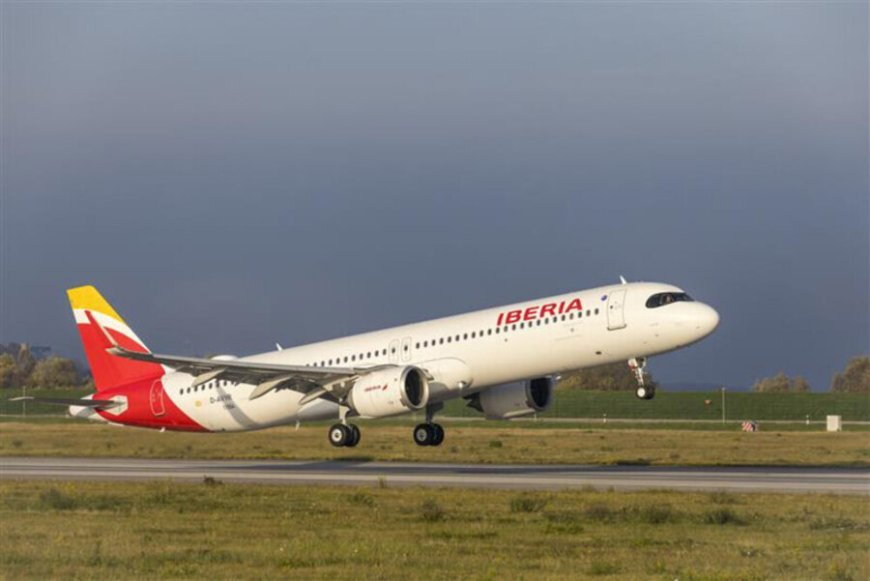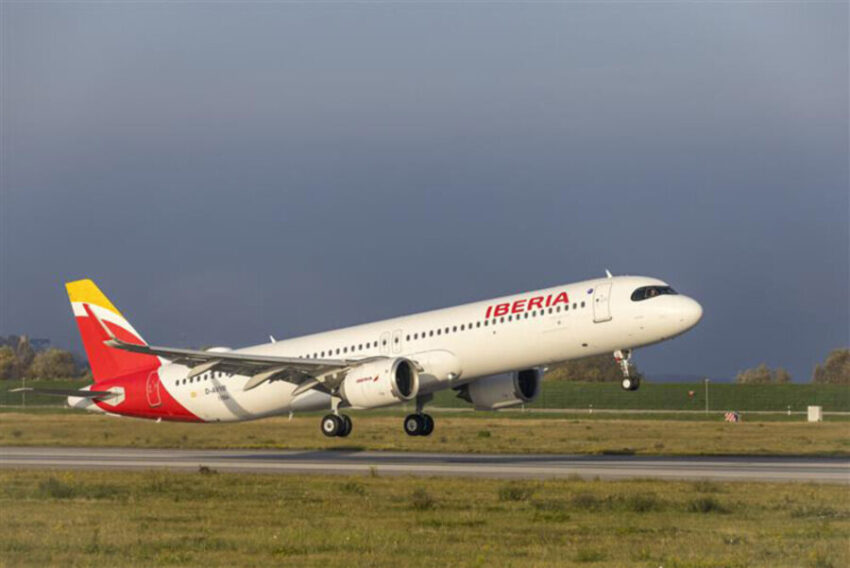New Iberia Flight Struggles with Bird Strike Damage to A321XLR, Forcing Emergency Return to Madrid and Delaying Paris Journey for Hours


Iberia, Spain’s flagship airline, faced an unexpected and serious challenge on August 3, 2025, when one of its Airbus A321XLR aircraft encountered a bird strike shortly after taking off from Madrid-Barajas Airport. Flight IB579, destined for Paris Orly Airport, was forced to return to Madrid after the collision caused significant damage to the plane’s nose radome and weather radar system. Despite the alarming circumstances, the flight crew’s quick thinking and professionalism ensured the safety of all passengers and crew members aboard.
The Incident
The Airbus A321XLR, recently added to Iberia’s fleet, took off from Madrid-Barajas at 6:40 p.m. on a short journey to Paris. Just minutes into the flight, the aircraft collided with a large bird, believed to be a vulture, resulting in severe damage to the nose radome—a vital component that protects the aircraft’s weather radar. The bird also caused damage to the fan blades in the left engine.
Although the cockpit received a warning about a potential engine fire, this was later determined to be a false alarm. Following standard emergency protocols, the pilots immediately declared an emergency and began returning to Madrid-Barajas. The aircraft successfully landed 20-30 minutes after takeoff, avoiding further complications and ensuring the safety of everyone on board.
Fast Action to Minimize Disruption
Iberia acted quickly to mitigate the impact on its passengers. By 8:29 p.m., a replacement flight was already airborne, taking passengers to Paris. The new flight, which was an A320neo, arrived at Paris Orly at 10:12 p.m., causing a four-hour delay. Although the delay was inconvenient, Iberia’s efficient handling ensured that passengers were safely and promptly rebooked.
Meanwhile, the damaged Airbus A321XLR was towed off the runway for a thorough inspection. The radome, which plays a crucial role in storm and weather detection, was severely damaged and will require extensive repairs before the aircraft can return to service.
The Risks of Bird Strikes
Bird strikes are a rare but significant hazard in aviation. Madrid-Barajas, like many airports, employs various bird control measures, including falcon patrols, to reduce the risk of such incidents. However, Spain’s skies, especially in rural areas, are home to a large population of vultures, making the risk of collisions with these birds difficult to avoid.
This bird strike incident prompted a mandatory safety report to aviation regulatory agencies, including the European Union Aviation Safety Agency (EASA) and the Federal Aviation Administration (FAA). Given that the damage to the weather radar system is substantial, the aircraft will undergo a lengthy inspection and repair process to return to operational status.
A Setback for Iberia’s New Aircraft
The A321XLR, introduced into Iberia’s fleet in late 2024, is a state-of-the-art aircraft designed for long-haul flights with enhanced fuel efficiency and extended range capabilities. This bird strike, though rare, highlights the unpredictable challenges even the newest and most advanced aircraft face. The incident represents a setback for Iberia’s plans to expand its fleet with the A321XLR model, especially given the relatively short amount of time the aircraft has been in service.
Iberia has eight more A321XLRs on order, and while the damaged aircraft is undergoing repairs, the airline remains optimistic about the long-term benefits of this next-generation plane. However, given the damage to critical components, it may take weeks before the aircraft is cleared to return to flight.
Conclusion
The bird strike incident involving Iberia flight IB579 underscores the unpredictable nature of aviation, even for the most advanced aircraft. However, the airline’s swift and professional handling of the emergency and rebooking process helped ensure passenger safety and minimized disruptions. While the aircraft’s weather radar system will require extensive repairs, Iberia’s quick response serves as a reminder of the importance of both preparation and swift action when it comes to handling unexpected situations in the aviation industry. Despite this setback, the A321XLR will continue to play a key role in Iberia’s long-haul fleet once it is fully repaired.
The post New Iberia Flight Struggles with Bird Strike Damage to A321XLR, Forcing Emergency Return to Madrid and Delaying Paris Journey for Hours appeared first on Travel And Tour World.






